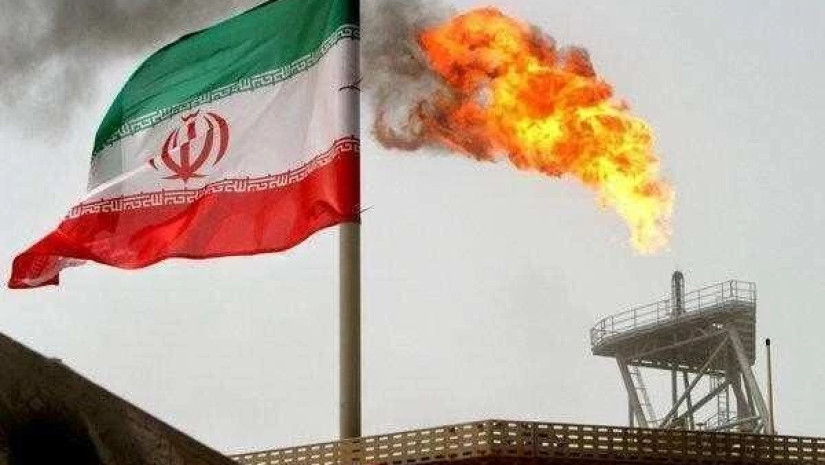The US unleashed its "toughest ever" sanctions against Iran on Monday, a move that has already sparked mass protests in the oil-rich nation.
The Trump administration reinstated all sanctions removed under the 2015 nuclear deal, targeting both Iran and states that trade with it.
They will hit oil exports, shipping and banks - all core parts of the economy.
Thousands of Iranians chanting "Death to America" rallied on Sunday, rejecting calls for talks.
Iranian President Hassan Rouhani has vowed to sell oil and break the sanctions.
The military was also quoted as saying it would hold air defence drills on Monday and Tuesday to prove the country's capabilities.
The demonstrations took place on the 39th anniversary of the occupation of the US embassy in Tehran, which led to four decades of mutual hostility.
Before travelling to a campaign rally for the US mid-term elections, President Donald Trump said Iran was already struggling under his administration's policies.
He called the sanctions, "very strong", saying: "We'll see what happens with Iran, but they're not doing very well, I can tell you."
What started this?
Washington re-imposed the sanctions after Mr Trump in May pulled out of a 2015 accord aimed at curbing Iran's nuclear ambitions.
Washington also says it wants to stop what it calls Tehran's "malign" activities including cyber attacks, ballistic missile tests, and support for violent extremist groups and militias in the Middle East.
"We are working diligently to make sure we support the Iranian people and that we direct our activity towards ensuring that the Islamic Republic of Iran's malign behaviour is changed," US Secretary of State, Mike Pompeo, told Fox News on Sunday.
"That's the goal, that's the mission, and that's what we will achieve on behalf of the president."
What could the impact be?
The US has been gradually re-imposing sanctions, but analysts say this latest round is by far the most significant.
More than 700 individuals, entities, vessels and aircraft are now on the sanctions list, including major banks, oil exporters and shipping companies.
Mr Pompeo said more than 100 big international companies had withdrawn from Iran because of the looming sanctions.
He also said Iranian oil exports had dropped by nearly one million barrels a day, choking the main source of funding for the country.
In addition, the Brussels-based Swift network for making international payments is expected to cut off links with targeted Iranian institutions, isolating Iran from the international financial system.
How have EU states reacted?
The UK, Germany and France - which are among the five countries still committed to the nuclear pact - have all objected to the sanctions.
They have promised to support European firms that do "legitimate business" with Iran and have set up an alternative payment mechanism - or Special Purpose Vehicle (SPV) - that will help companies trade without facing US penalties.
However, analysts doubt this will materially lessen the impact of sanctions on Iran.
And in recent days US Treasury Secretary Steven Mnuchin said the US would "aggressively" target any firm or organisation "evading our sanctions".












